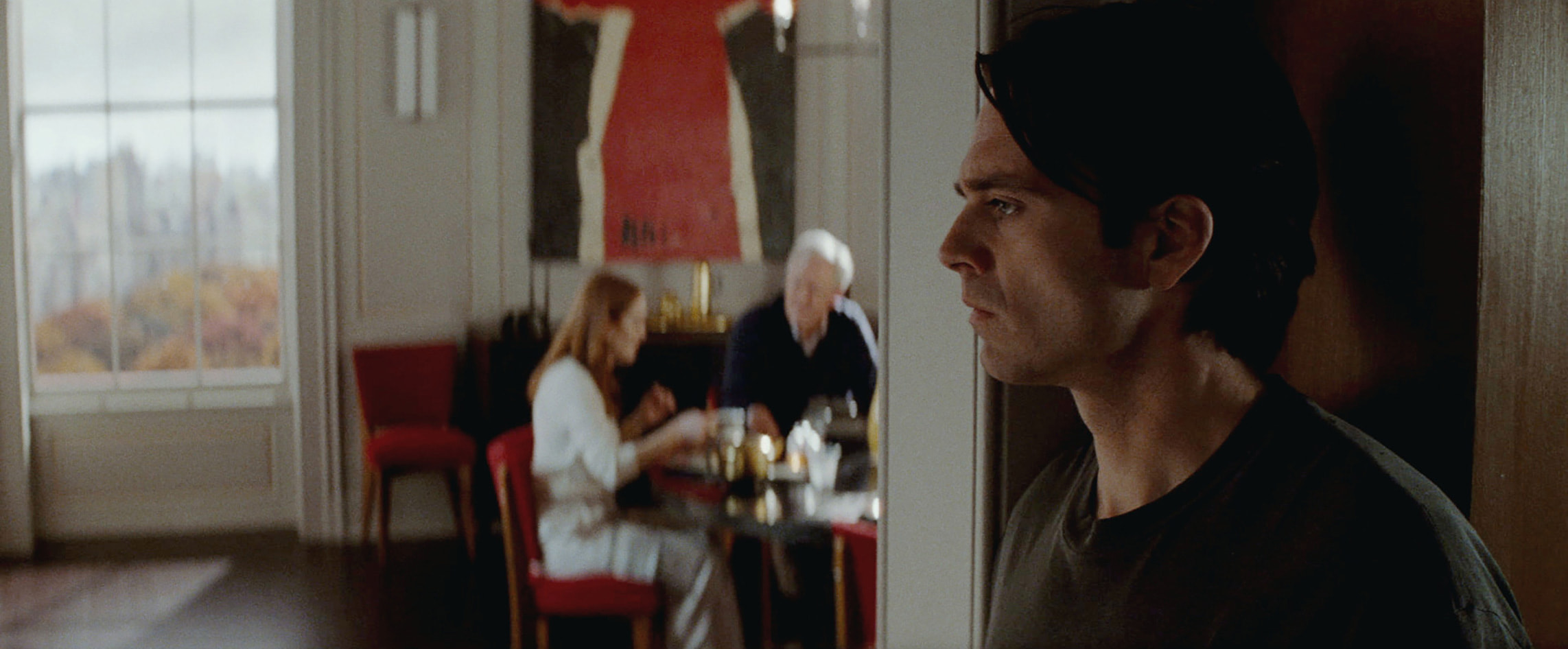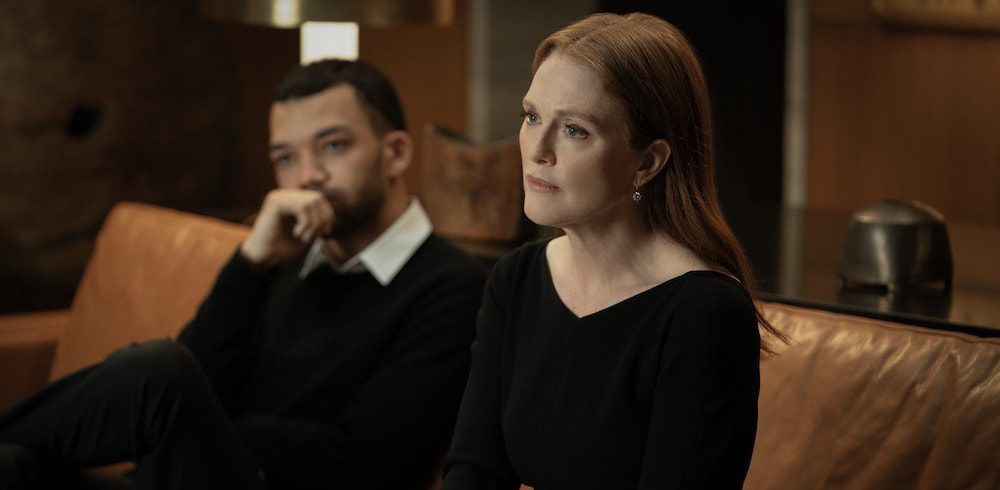Apple TV+’s ‘Sharper’ is a thriller film that follows the story of several characters who are not what they seem. The story begins with a young man named Tom, who is a bookstore owner in New York. He falls in love with Sandra, who turns out to be a con artist. As we delve into Sandra’s perspective, more details about the bigger picture come out as we discover the real story behind the con that changed Tom’s life. Directed by Benjamin Caron, the film takes a non-linear approach following the story from different perspectives to create a mystery for the viewers. It is also told in a very raw and realistic manner, which might make you wonder if it’s based on a true story. Let’s find out.
Sharper is an Original Screenplay

No, ‘Sharper’ is neither based on a true story nor a book. It was an original screenplay written by Brian Gatewood and Alessandro Tanaka. The script was on the blacklist for 2020 and was brought into the spotlight by Julianne Moore. Talking about the importance of a name as big as Moore getting attached to a movie like ‘Sharper’, director Benjamin Caron said: “This movie wouldn’t have happened had she not read it and gone, ‘I want to make this movie,’ then Apple and A24 would not want to make this film.”
When the project came to Caron’s attention, he was fascinated with the idea of “good people that do bad things and bad people that do good things”. Because there are so many elaborate cons in the film, Caron wanted to understand what goes into the mind of a person when they are pulling a con. To get into the mind of his characters, he decided to pull a mild con himself, something that wouldn’t get him arrested. He went to the Tom Ford boutique in Manhattan and pretended to have a connection with someone that got him huge discounts.
Caron revealed that he had been very nervous that he would get caught while his order was being wrapped. “I got the fear, the immense fear, like, ‘Oh my God — Tom Ford is friends with Julianne Moore. If he finds out about this, he’s going to ring her up! Every minute I thought I was going to get busted,” the ‘Andor’ director said. But once he walked away from it scot-free, he confessed that he felt a “crazy buzz” in his head.
Knowing how important it was to keep the intentions of the characters a secret from the audience, the director made a conscious effort to not give away anything before the revelation. “Deception is definitely the defining feature of this film, and I’m always interested in characters’ motivations and how people talk or flirt or lie or impersonate in terms of getting what they want. I thought it was really important in this film that we never had a nod and a wink to the audience at any moment that something was about to happen,” he said. He knew that even one slip or one nod to a certain plot twist would lead the audience to cling to the detail and unravel the entire story.

Another thing that Caron kept in mind was to establish the timeline in the non-linear narrative without actually explicitly talking about it. He used seasons to “convey a tone and feeling” of the different chapters of the movie. So, when Tom and Sandra are falling in love, it’s springtime in New York. But when we get to see the story from Sandra’s perspective, it takes place in winter, reflecting the harsh nature of Sandra’s life.
The director also talked about the influence of movies like ‘The Color of Money’, ‘Drive’, ‘House of Games’, ‘The Sting’, ‘The Grifters’, ‘The Usual Suspects’, ’Se7en’ and ‘Klute’, in particular, in the cinematography of the film. In David Fincher’s movie, Caron noticed the claustrophobia of the rain and the dark, until the final scene, which takes place in a desert. He did the same thing with his characters, where for the most part, we follow their story in the closed spaces of New York, signifying their closed natures and how they are all hiding something from the others. In the end, however, when all the secrets are revealed, it takes place in an open area where the characters have nowhere to hide.
For the bottom line, however, the filmmakers made sure that they infused all the characters with enough development to give the audience a sense of their story and make them sympathetic towards them, no matter if they are the protagonist or antagonist. Considering all this, it is clear that while ‘Sharper’ is not based on true events or people, it remains rooted in reality to connect better with the audience.
Read More: Where Was Sharper Filmed?


You must be logged in to post a comment.